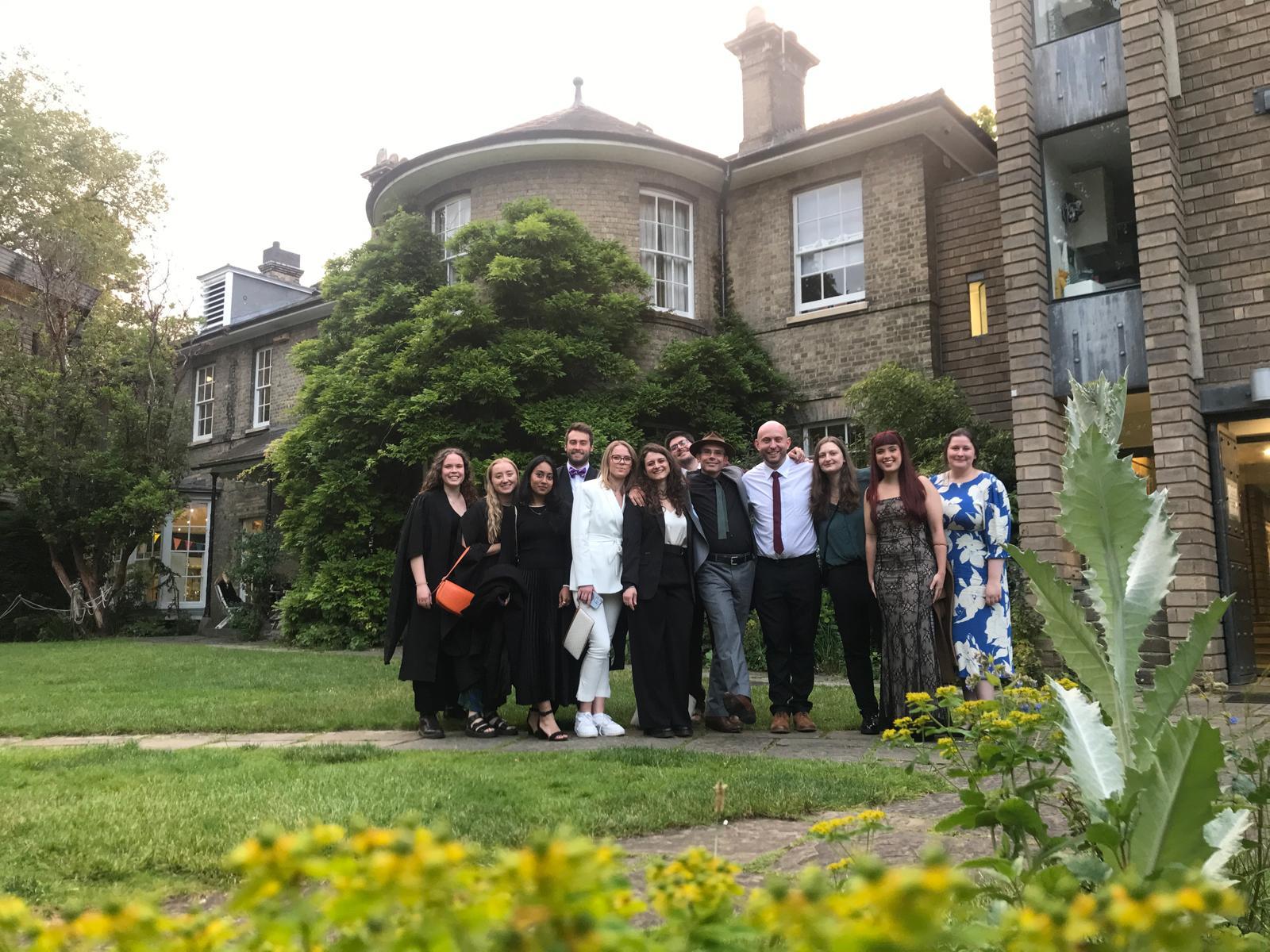
Our Research
In our lab, we investigate the pathogenesis and aetiology of paediatric cancers towards the development of biomarkers to facilitate kinder, less toxic and novel therapeutic approaches.
Current Projects
Mechanisms of Lymphomagenesis
Lymphoma is a heterogeneous disease class consisting of greater than 40 different sub-types and the incidence of this disease has been increasing year on year. In our research we are making progress towards understanding how and why lymphoma develops and hence in the development of new treatments. We investigate a paradigm of lymphomageneis in which a chromosomal translocation leads to the generation of an oncogene and subsequent presumed transformation of T-cells. The oncogene we work with is Nucleophosmin-Anaplastic Lymphoma Kinase (NPM-ALK), a hyperactive tyrosine kinase generated as a result of a translocation between chromosomes 2 and 5. This event is associated with greater than 90% of cases diagnosed as anaplastic large cell lymphoma (ALCL), a mature T-cell malignancy mainly occurring in paediatric patients. Our research aims to unravel the events leading from the t(2;5) to lymphoma. We use a variety of experimental approaches to reach this goal.
Understanding drug resistance in paediatric cancers
We are also developing a resource of patient derived xenografts of paediatric lymphoma, specifically ALCL and Burkitt lymphoma as well as neuroblastoma. Applying these models, our lab is conducting research to experimentally-induce relapse in an effort to understand clonal evolution of tumour cell growth. With this knowledge in hand, our lab then applies high-throughput drug screens and sequencing approaches to develop novel therapeutic regimens. Alongside, this research activity, we also employ CRISPR/Cas9 screens for the identification of putative mechanisms of drug resistance employing cell lines.
Comparative analysis of endemic and sporadic Burkitt lymphoma
Our lab works together with Jackson Orem at the Uganda Cancer Institute in Kampala, Uganda in an effort to understand the aetiology and pathogenesis of Burkitt lymphoma with a particular emphasis on tumour clonal evolution with treatment. This aspect of our research is supported by Cambridge Africa.
Breast implant associated anaplastic large cell lymphoma (BIA-ALCL)
The most recent addition to the family of ALCL is a form of cancer associated with the presence of textured breast implants. Given our 20 years of experience of working towards understanding the pathogenesis of ALCL, we have turned our attention to unraveling the mechanisms that drive this specific form of cancer.
Recent Publications
Pucci P, Lee LC, Han M, Matthews JD, Jahangiri L, Schlederer M, Manners E, Sorby-Adams A, Kaggie J, Trigg RM, Steel C, Hare L, James ER, Prokoph N, Ducray SP, Merkel O, Rifatbegovic F, Luo J, Taschner-Mandl S, Kenner L, Burke GAA, Turner SD. Targeting NRAS via miR-1304-5p or farnesyltransferase inhibition confers sensitivity to ALK inhibitors in ALK-mutant neuroblastoma. Nat Commun. 2024 Apr 23;15(1):3422. doi: 10.1038/s41467-024-47771-x.
Nina Prokoph†, Jamie D. Matthews†, Ricky M. Trigg, Leila Jahangiri, Ivonne A. Montes-Mojarro, G.A. Amos Burke, Falko Fen, Olaf Merkel, Lukas Kenner, Birgit Geoerger, Robert Johnston, Matthew J. Murray, Charlotte Riguad, Laurence Brugières, and Suzanne D. Turner. (2023) Patient-derived xenograft models of ALK+ ALCL reveal preclinical promise for therapy with Brigatinib. British Journal of Haematology, doi: 10.1111/bjh.18953
Prokoph, N., Probst, N.A., Lee, L.C., Monahan, J.M., Malik, V., Liang, H-C., Sharma, G.G., Montes-Mojarro, I., Mota, I., Larose, H., Forde, S.D., Imamoglu, R., Matthews, J.D., Trigg, R., Ceccon, M., Ducray, S.P., Lobello, C., Janikova, A., Gambacorti-Passerini, C., Pospisilova, S., Kenner, L., Klapper, W., Jauch, R., Woessmann, W., Chiarle, R., Mologni, L., Merkel, O., Brugières, L., Geoerger, B., Barbieri, I., and Turner, S.D. (2020) Inflammatory networks drive resistance to drugs in ALCL, ALK+; the IL10R is up-regulated in response to consistent exposure to ALK inhibition. Blood, 136(14):1657-1669. doi: 10.1182/blood.2019003793
Lucy Hare, G.A. Amos Burke and Suzanne D. Turner (2021) Resistance to Targeted Agents Used to Treat Paediatric ALK-Positive ALCL 13(23), 6003; https://doi.org/10.3390/cancers13236003
Forde, S., Matthews, J.D., Jahangiri, L., Lee, L.C., Malcolm, T.I., Bell, N., Bomken, S., Burke, G.A.A., and Turner, S.D. (2020) Paediatric Burkitt lymphoma patient-derived xenografts capture disease characteristics over time and are a model for therapy, British Journal of Haematology, http://dx.doi.org/10.1111/bjh.17043
Okello, C.D., Niyonzima, N., Ferraresso, M., Kadhumbula, S., Ddungu, H., Tarlock, K., Balagadde, J., Omoding, A., Karagu, A., Mwaiselage, J., Harlan, J.M., Uldrick, T.S., Turner, S.D.* and Orem, J.* (2021) Review Series on Priorities in Haematological Care in Sub-Saharan Africa (SSA), Blood Cancers. Haematological Malignancies (HMs) in Sub-Saharan Africa (SSA): East Africa as an exemplar for Improving Care in the Region. Lancet Haematol. 2021 Oct;8(10):e756-e769. doi: 10.1016/S2352-3026(21)00198-8.
Jaques van Heerden, Joyce Balagadde-Kambugu, Racheal Angom, Rebecca Claire Lusobya, Guillermo Chantada, Laurence Desjardins, Ido Didi Fabia, Trijn Israels, Vivian Paintsil, Laila Hessissen, Mame Ndella Diouf, Moatasem Elayadi, Suzanne D. Turner, Francine Kouya and Jennifer A Geel (2022) Determining the baseline survival outcomes of the ‘six Global Initiative for Childhood Cancer index cancers’ in Africa. Paediatric Haematology and Oncology, https://doi.org/10.1080/08880018.2022.2140860
Auke Beishuizen*, Karin Mellgren*, Mara Andrés, Anne Auperin, Chris M. Bacon, Simon Bomke, G. A. Amos Burke, Birgit Burkhardt, Laurence Brugieres, Alan K.S. Chiang, Christine Damm-Welk, Emanuele d’Amore, Keizo Horibe, Edita Kabickova, Tasneem Khanam, Udo Kontny, Wolfram Klapper, Laurence Lamant, Marie-Cecile Le Deley, Jan Loeffen, Elizabeth Macintyre, Georg Mann, Friederike Meyer-Wentrup, Ulf Michgeh, Veronique Minard-Colin, Lara Mussolin, Ilske Oschlies, Catherine Patte, Marta Pillon, Alfred Reiter, Charlotte Rigaud, Leila Roncery, Itziar Salaverria, Ingrid Simonitsch-Klupp, Anne Uyttebroeck, Jaime Verdu-Amoros, Denise Williams, Wilhelm Woessmann, Andrew Wotherspoon, Grazyna Wrobel, Martin Zimmermann, Andishe Attarbashi* and Suzanne D. Turner* (2022) Improving outcomes of childhood and young adult non-Hodgkin lymphoma (NHL); twenty-five years of research and collaboration within the framework of the European Intergroup for Childhood Non-Hodgkin Lymphoma (EICNHL) Lancet Haematology 2023 10(3) 213-224 DOI: https://doi.org/10.1016/S2352-3026(22)00374-X
Professor Suzanne Turner
Principal Investigator


